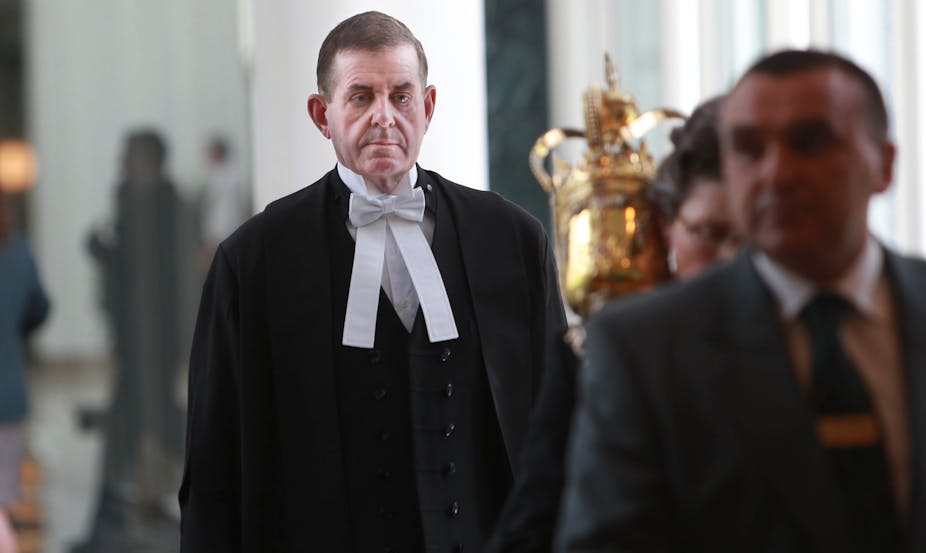In 19th century Australia, democrats such as Henry Parkes could not emphasise too much how important it was to elect a Parliamentary representative who was honourable, decent and able to work on behalf of the public good.
He provided some advice for those voting for the first time when universal manhood suffrage was introduced into New South Wales. The primary quality he said to look for in a representative was “personal integrity”.
Now it may be the case that Parkes sometimes failed to live up to the high standards he advocated, but the ideal remains as important in 21st century Australia as it was in the 19th.
We still want those who represent us to possess high levels of personal integrity and to be decent people who work on our behalf. In short, we want individuals who have honour.
The early years of self-government in colonial Australia also established what Australians did not like, and still do not like, and that is politics.
By politics they meant the desire to achieve power for its own sake, the use of sly and devious tricks to gain advantage. Such behaviour might be clever, but in a crafty and underhand way. It is not the way that anyone with any dignity or honour would behave. Or, if they did, they would feel ashamed of themselves.
Unfortunately in the 21st century politics, and especially “clever politics”, would appear to be in the ascendant. This is the age of “whatever it takes”, of using any scheme or device to acquire power and to stay in power. Being in power seems to be an end in itself.
We would seem to be living in the age of Machiavelli, except even Machiavelli understood that rulers did what they did, not for their own self-aggrandisement, but in order to benefit the common good. Doing “whatever it takes” is simply wrong if it is done out of self interest.
The current hung parliament seems to have brought out all the worst features of an age in which politicians worship at the shrine of “clever politics”. This is because our current circumstances place such practices at a premium; they appear to be the best means to acquire, and cling to, power.
In the process, the last vestiges of principle and honour are trampled underfoot.
But to what end, one may ask. If it is only so that politicians may exercise power for a short time is it really worth the effort? Representatives are meant to represent the people who have elected them.
This means, among other things, representing the values and moral aspirations of the people. Are the Australian people wedded to a “whatever it takes” view of the world? Are they willing to sacrifice their honour simply to be successful? I would think not.
The ordinary people of Australia are fundamentally decent and honourable; the Australian people have their weaknesses and their failings but they are not corrupt. They want, I believe, their representatives to be like them.
A very real problem arises when they look at their representatives and all they can see is “clever politics”. All they can feel is disgust at politics. It is hard to see what benefits there are in sacrificing honour to short-term political gain.
Good reputation is something which is worth preserving, lost all too easily and very difficult to regain. In the longer term it is much better to preserve one’s honour than it is to “play politics”, even if the prize is the opportunity for power.
When politicians behave honourably, they gain in public estimation, but they also ensure that they remain decent human beings.
It would have been much better if both political parties had not engaged in an unseemly pandering to the independents when the hung parliament became a reality. It would have been better if they had simply said, “these are our policies, support who you will”.
It would be better if both the Slipper and Thomson cases were viewed in moral rather than legal terms. These men are both representatives of the people and they must recognise their moral responsibility to those who elected them.
Cleverness is a tactical virtue but a strategic vice. To play clever politics gives short term advantage. But it is a destructive force. It destroys honour and hence the reputation of both politics and politicians in the eyes of the people. It is simply foolish.

